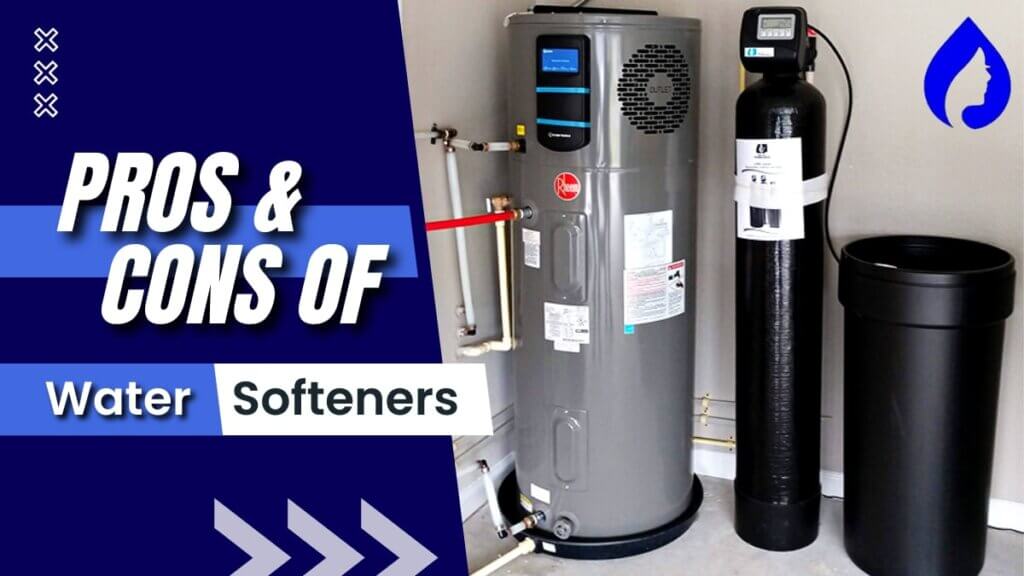
What are the pros and cons of water softeners? Why bother spending a fortune on a water softening system?
Here’s a quick breakdown:
Pros
- Removes trouble-causing hardness minerals.
- Increases the life of plumbing and water appliances.
- Healthy Hair and Skin
- Improves cleaning efficiency of soaps and detergents
Cons
- Brine discharge is not eco-friendly
- Potential health risks due to high salt intake
- High installation and maintenance costs
Let’s do a deep dive to know whether water softeners will benefit your home!
Seven Advantages of Water Softeners
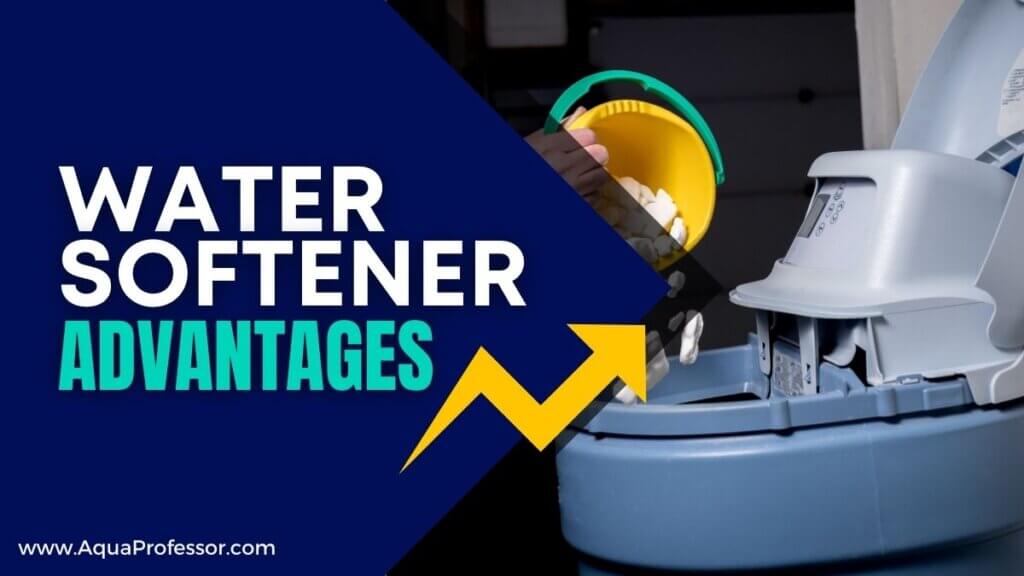
Prevents Scaling Inside Pipes and Fixtures
Hard water contains minerals like magnesium, calcium, iron, and manganese. The precipitation and build-up of these minerals in the water pipelines and fixtures cause scaling, like an extra coating on the surface. It may restrict the flow of water and blockage around fixtures. You may even notice leaks as some junctions build up in clogged areas. Water softeners solve this issue by preventing scaling in fixtures and pipes.
Improves Lifespan Of Your Water Appliances
When I started using water softeners, I soon realized the difference they made to working water appliances. It took less time for my water heater to heat water. My water filter indicated the need for filter replacement after an extended period. The shower didn’t clog anymore. The utensils came out all clean and shining from my dishwasher. All thanks to the soft water supply from the water softening unit.
Improves The Taste Of Drinking Water

While reaction to water taste might vary from person to person due to personal preference, you will find the soft water tastes more pleasant. Even though hard water tastes slightly bitter and smells like chlorine, it is not detrimental to our health.
If you are used to drinking water rich in hard minerals, you will find the taste of soft water unpleasant. But, once you are used to the taste of soft water, there’s no going back.
Makes Water Healthy For Your Hair and Skin
Using water softener units in homes will show visible improvement in your dry hair and skin quality. Hair looks more shiny and manageable, with less hair fall.
Skin irritation and dry skin are common skin problems associated with unsoftened water. Soft water has a slippery texture, giving your skin a smooth and healthy glow.
Keeps Dishes and Glassware Clean
Are you worried about the embarrassment you face when your guests point out water spots on your utensils? You should know that these water stains appear when hard water evaporates from the surface and leaves behind insoluble mineral precipitates on your silverware.
Well, worry no more. Water softeners supply soft water which does not leave stubborn reddish-brown stains on your dishes and glassware.
Also Read: Are Water Softeners Same As Filters?
Prevents Detergent Curds In Washing Machines
I have been a chemistry student, so let me explain the working of soaps and detergents with hard water. When we use soaps and detergents with hard water and try to form leather, a white slimy substance called scum or detergent curd is formed.
Scum results from the reaction of hard water minerals like calcium and magnesium ions with soaps and precipitation of their salts. The effectiveness of soap is reduced, and the resulting scum sticks to the clothes and even clogs the drain holes at the bottom of washing machines.
To overcome this problem, make sure you use a water softener for soft water supply for washing clothes.
Also Read: Truth About Florida’s Drinking Water
Reduced Costs and Water Usage
Let me draw you a mental picture here.
Less mineral levels in water mean less build-up and scaling in pipelines and appliances. Less build-up and scaling means constant water flow rates in pipelines without blockage and increased efficiency of water appliances. Increased efficiency means lesser energy consumption, reduced costs, and more output. See how water softeners can do wonders for your household in the long run?
Also Read: 5 Top Faucet For Hard Water
Five Disadvantages of Water Softeners
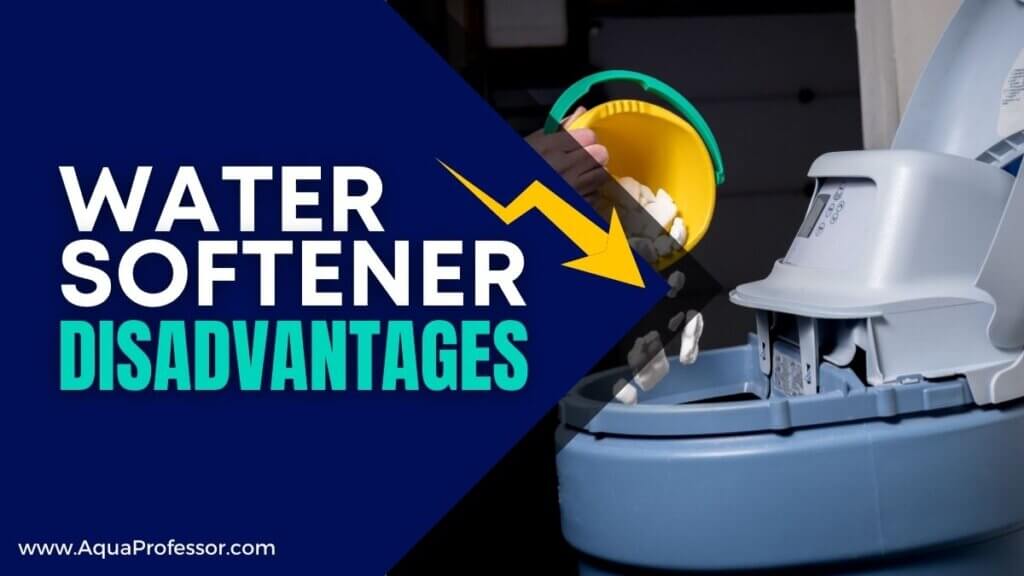
Negative Effects On The Environment Because of Sodium Addition
The environment is a delicate balance. According to researchers and water experts, drainage from water softeners has high salt content. These high levels of sodium chlorides, when discharged into your septic systems or open fields, become a hazard for plants and trees.
When this salt-rich soft water enters the soil, it changes its texture, pH, and percolation properties. Also, the concentrated salty water has very high osmotic potential and competes for water with the roots of plants and trees, affecting their growth and development.
Also Read: Conditioners Are Better Than Softeners?
May Damage Your Pipes
On the one hand, soft water prevents scaling and build-up in pipes and appliances, but on the other hand, it causes corrosion. Water with a lower mineral concentration becomes an excellent solvent for the dissolution of metal ions. The copper and lead ions from pipelines dissolve into the soft water, thus causing the degradation of pipes.
Scaling provides a harmless coating on the pipe surface, preventing corrosion. Thus, to overcome this problem, running hard water in your entire plumbing for one or two weeks is advised to allow limescale build-up, which is non-reactive and insoluble. Thus, using soft water after this deposition will no longer cause corrosion of your pipelines.
Also Read: Why Water Softener Water Tastes Salty
Wastes Water During Regeneration
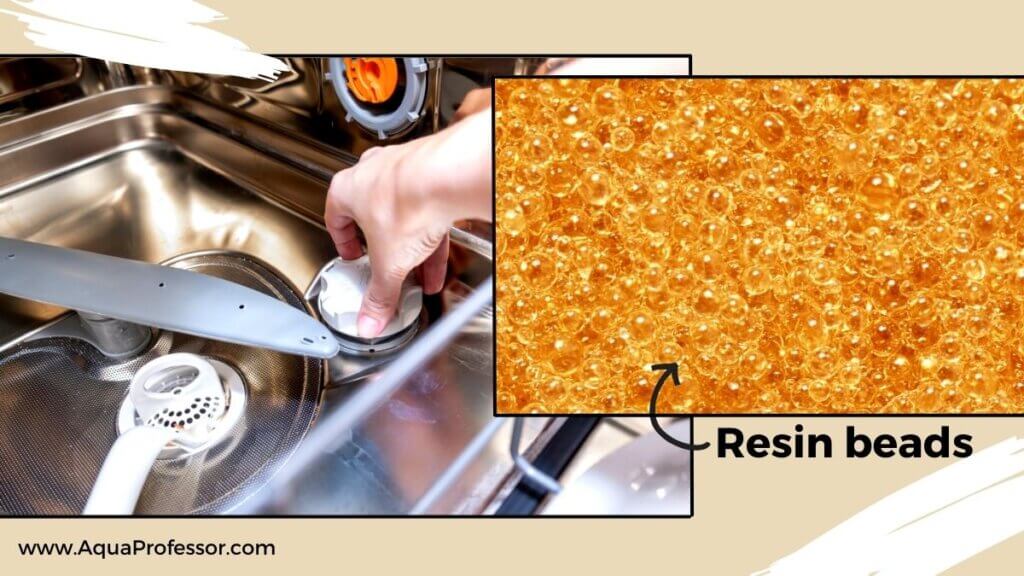
The regeneration process is a cleaning cycle run by various salt-based softeners. The resin beads inside the water softening mineral tank are covered with mineral ions after treatment with hard water, which needs to be washed off from time to time.
Thus, a good amount of clean water is pumped in at high speed for the regeneration cycle, which is then drained and, thus, wasted. Keep in mind that installing a water softener might increase your water bills.
Also Read: Are Salt Free Water Softeners Worth It?
Removes Essential Minerals Like Calcium And Magnesium from Water
As I said earlier, hard water is not a health hazard. In fact, it is pretty beneficial on daily intake. All the minerals like Calcium, Magnesium, and Iron present in hard water are essential for your body and its development. Removing these healthy minerals from the water might lead to their deficiency in your body.
Not to be at any loss, keep a separate cold water pipeline to supply hard water, without passing it through water treatment systems, for drinking and cooking purposes. So, why take dietary supplements when we have a direct supply of hard water in our homes?
Also Read: Smart Ways To Discharge Softener Backwash
Expensive to Install + Difficult for a Beginner + Added Maintenance Costs
The one-time installation cost of high-quality water softeners is relatively high, followed by maintenance costs throughout its lifespan.
Although the water softeners come with a DIY installation guide, it is not likely that you will be able to install them independently if you are not a handyman. A trained or experienced person usually install the unit correctly without leakage. Plumbers also charge pretty high fees on an hourly basis.
Even though the main maintenance requirements only account for monthly salt replacement, which is barely $3 -$4 per pack, you cannot ignore it. Choosing the right, well-designed water softener system that fulfills all your needs and fits your budget is quite stressful.
So, take your time, analyze tap water quality and make a cost-effective decision.
Here’s The 1-Line Takeaway:
Water softeners are more of a necessity than a luxury because most families have no choice but to install a water softening unit to overcome hard water woes, as the disadvantages of hard water outweigh its advantages.
Why Are Salt Based Water Softeners Banned?
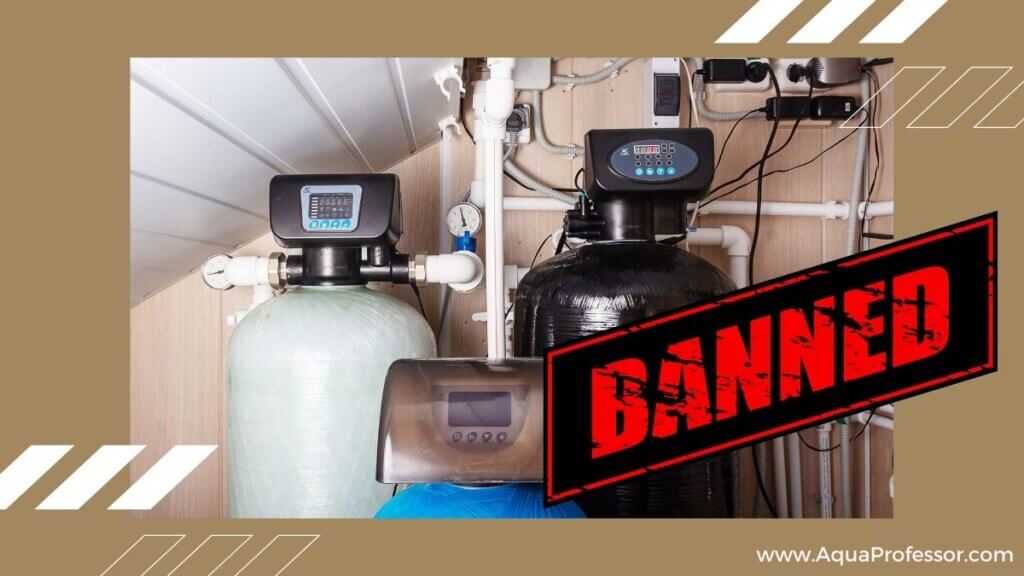
Keeping in mind the effect of water softeners on the environment, various states and cities have passed laws and guidelines regarding their use.
Such strict policies can be seen in California, Arizona, Texas, Massachusetts, Connecticut, Michigan, and a few small cities in the United States.
Now, why such strict actions against the wonderful water softeners? Well, the answer is straightforward – adverse effects on Mother Earth.
The issue is against the use of self-regenerating salt-based water softening systems that discharge concentrated salty water into the city’s sewage system. They use the ion-exchange process to trade sodium ions for hard mineral ions in the resin bed during the softening process.
When mixed with groundwater or discharged into the field, this water enters the soil and disturbs the growth of our beloved plants and trees.
Also Read: Correct Way To Reset Your Water Softener
Is Softened Water Worth It?

So far, you have learned about the various pros and cons of water softeners, soft water, and hard water.
Softened water might seem to have various advantages over hard water. The trouble free-working, no build-up and scale deposits, increased life of water gadgets, healthy hair, glowing skin, and the list goes on.
But, one major disadvantage of using salt-based water softeners is high sodium levels in the water. Although sodium is an essential component of our body and helps generate nerve impulses and maintain the osmotic balance of the body, excess of anything is dangerous.
It increases blood pressure and causes cardiovascular diseases and kidney problems in the long run. Patients suffering from hypertension, heart and kidney disorder are strictly kept on a low sodium diet.
To overcome this problem, you can use potassium chloride pellets instead of sodium salt in your water softener. It does the same function and gives an additional benefit to your health.
You can also look for other water softening alternatives that do not use salt or keep a separate tap for drinking and preparing food.
Another thing to remember is the dissolution of heavy metal ions like Copper and Lead into the softened water. If present in toxic concentrations, these metals may prove injurious to our health.
As discussed earlier, you can allow hard water to run through your household water lines for a few weeks, after which you can switch back to soft water. The inert layer deposited on the inner surface will ensure no corrosion.
Also Read: Do You Need Whole House Water Filters?
Water Softener Pros And Cons FAQs
Which States In The U.S. Have Very High Water Hardness Levels?
Indiana, Texas, and Minnesota are among the US states with the highest water hardness level.
Why Is My Water Still Rusty With A Water Softener?
Ans: There can be 4 reasons for that:
What Are Different Types Of Water Softeners?
There are mainly 3 types of water softeners based on their mechanism of action:
What Are The Different Water Softener Alternatives To Use?
This the water softener alternative that you can use in your households:
What Is The Installation Cost Of A Water Softener?
Usually, the installation of a good water softener ranges between $300 to $1500, but it ultimately depends on your type of water softener.
You also get the same water softener with different filtering capacities at different prices. Source water analysis and daily water consumption are important aspects to discuss before buying. Usually, 600 gallons of water per day is sufficient for a family of six members.
The traditional salt-based water softener is pretty expensive compared to salt-free systems or descalers. The RO systems can again have a high installation cost.
Do not forget that along with the initial cost, you would have to bear the depreciation and routine maintenance costs of such systems throughout their lifetime.
Adarsh is a Health & Nutrition Sciences graduate with expertise in environmental health. He is associated with ventures like Glacier Fresh Filter and Simpure Filter Systems. Through Aqua Professor, he intends to provide helpful information to every home to help them make smarter decisions.
